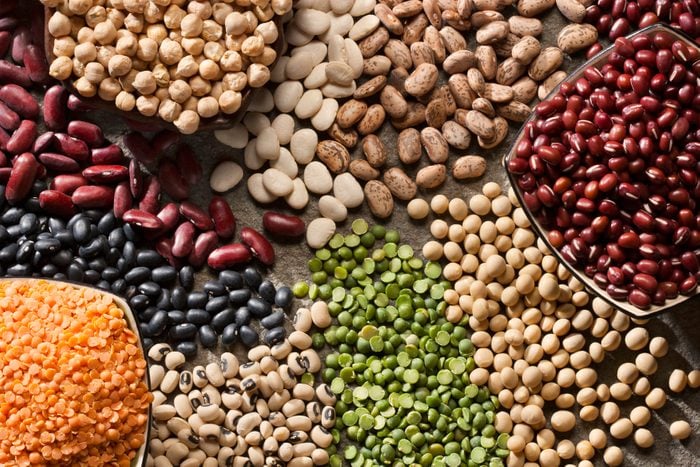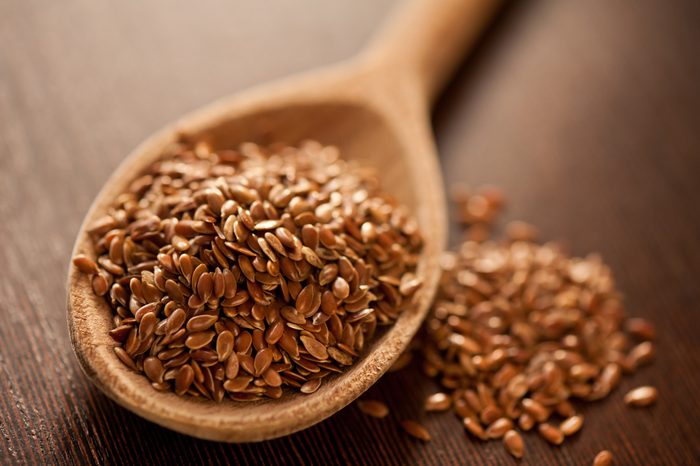Cleveland Clinic digestive health experts come to the rescue with "maneuvers and techniques," as they say, to get things moving when your system is slow.

7 Natural Remedies That Make You Poop Immediately, From a Gastroenterologist


It’s essential for your health to have regular bowel movements, and maybe you’re so regular you know in what windows of the day you typically go. But when nature doesn’t issue that call so reliably, this can reach the point of discomfort that nearly all of us have experienced at some point. In fact, the Cleveland Clinic suggests more than 2.5 million people seek help from healthcare providers for constipation.
Cleveland Clinic digestive health experts tell us that on these occasions, you can call nature in. In addition to drinks that make you poop immediately, there are foods and other practices worth trying to rev up your gut and move things out.
Ahead, load up with wisdom on the natural remedies that make you poop immediately from two Cleveland Clinic gastroenterology leaders: Dr. Samita Garg, MD, who specializes in gastroenterology, hepatology (liver health), and nutrition; and Kendra Weekley, MS, RD, LD, a registered dietitian with the Cleveland Clinic Center for Human Nutrition, who specializes in working with patients with bowel disorders. We kick off with fennel seed, which research has suggested contains compounds that promote digestion, ease abdominal discomfort, and stimulate motility that moves waste out. Using fennel seed as an ingredient in food or steeping a tea may provide constipation relief.

Exercise
“Movement and exercise can stimulate the abdominal muscles and blood flow to your intestines,” notes Dr. Garg. You don’t have to push yourself too hard—even a brief stroll can be effective. Dr. Garg also recommends establishing a consistent daily routine and ensuring you get enough sleep to promote regular bowel movements.

Psyllium husk
Derived from the seeds of the Plantago ovata plant, psyllium husk plays a versatile role in digestive health. “It can help soften harder stools and soak up water in loose stools, so it is often used in both constipation and diarrhea,” explains Weekley.
It’s recommended to start with a low dose and gradually increase as needed. Begin with approximately one teaspoon, slowly working up to one tablespoon three times daily, targeting soft-formed stools once or twice a day. Increasing water consumption is essential when taking psyllium husk.
Always consult your healthcare provider before adding any fiber supplement, including psyllium husk, into your routine.

Legumes
It’s commonly understood that boosting your dietary fiber intake is essential for maintaining regular bowel movements. Beyond fiber supplements such as psyllium husk, natural food sources like legumes can offer immediate relief.
Weekley points out that legumes, including lentils, chickpeas, and beans, contain fermentable and soluble fiber which acts as a prebiotic and also bulks up the stool. However, she adds a caveat: “Be careful, as many legumes create gas when being digested and can be uncomfortable.” A typical serving of legumes is about one-half cup.

Wheat bran
“This food can increase water and mucous secretion in the gut, making the stool easier to pass,” Weekley says, “and it will increase intestinal motility to get the gut moving.” Be sure to introduce this food gradually, as well.
To incorporate wheat bran, try sprinkling it over your morning yogurt or mixing it into smoothies. You can also add it to baked goods, like muffins and bread, for an extra fiber boost.

Kiwi
If you’ve been waiting for a fruit to pop up on this list, you’re in luck. “Kiwi fruits are well known for their laxative properties,” Weekley says. Packed with vitamin C, kiwi also contains fiber, potassium, vitamin E, and folate. “Two kiwi fruits per day was associated with a significant increase in frequency of defecation, stool volume and softness, and ease of defecation,” she adds.

Flaxseed
Flaxseed is a healthy fat that is known for its anti-inflammatory properties. “Flaxseed could also be a safe and effective treatment for constipation because it is a good source of soluble and insoluble fiber,” says Weekley. Consuming one to two tablespoons daily is usually recommended for health benefits. Try adding it to your morning oatmeal or smoothie to help you out.

Squat or use a stool
Dr. Garg points out that sometimes, simply improving the way we go to the bathroom can make a big difference. Squatting or using a stool might make it easier for your stool to pass. “Some people learn maneuvers and techniques over time of how to pass stool that aren’t working for them, so it can be beneficial to re-teach the mechanics of stooling,” Dr. Garg explains.
What is the 7-second poop trick?
Gina Sam, MD, developed a technique to help improve GI health and help ward off constipation. While there are no specific studies confirming the effectiveness of this trick, adopting these habits could contribute to overall wellness.
Start with water: Right after you wake up, drink a glass of room-temperature water. (You can also consider lemon water).
Stretch it out: Before you even get out of bed, do some gentle stretches. This not only eases muscle stiffness but also gets the blood flowing.
Try Pawanmuktasana: Known as the wind-relieving pose in yoga, this involves lying on your back and bringing your knees to your chest. It helps compress the colon, release trapped gases, and stimulate bowel movements.
Breathe deeply: Finish with a few rounds of diaphragmatic breathing. Deep, focused breaths help relax the body, increase oxygen levels, signal calmness, and promote better digestion.
Keep the following in mind:
“Maintaining regular bowel movements is very important for a healthy gut, and can prevent symptoms like gas, bloating, and nausea,” advises Weekley. It’s important to stay hydrated, remain active, and include a balanced amount of fiber in your diet to support regular bowel movements. Weekley offers these three practical tips to ensure you’re covering all these bases:
-
Make sure your urine is pale in color to prevent dehydration.
-
Take a 10-15 minute walk after meals to aid digestion.
-
Consume three to five servings of fruits and vegetables daily (and also make sure you’re reaching the goal of 25 to 30 grams of fiber per day).
If you continue to experience constipation despite trying these natural remedies, or if you have any specific questions about constipation and its treatments, don’t hesitate to contact your healthcare provider.
About the expert:
|
For more wellness updates, subscribe to The Healthy @Reader’s Digest newsletter and follow The Healthy on Facebook and Instagram. Keep reading:
